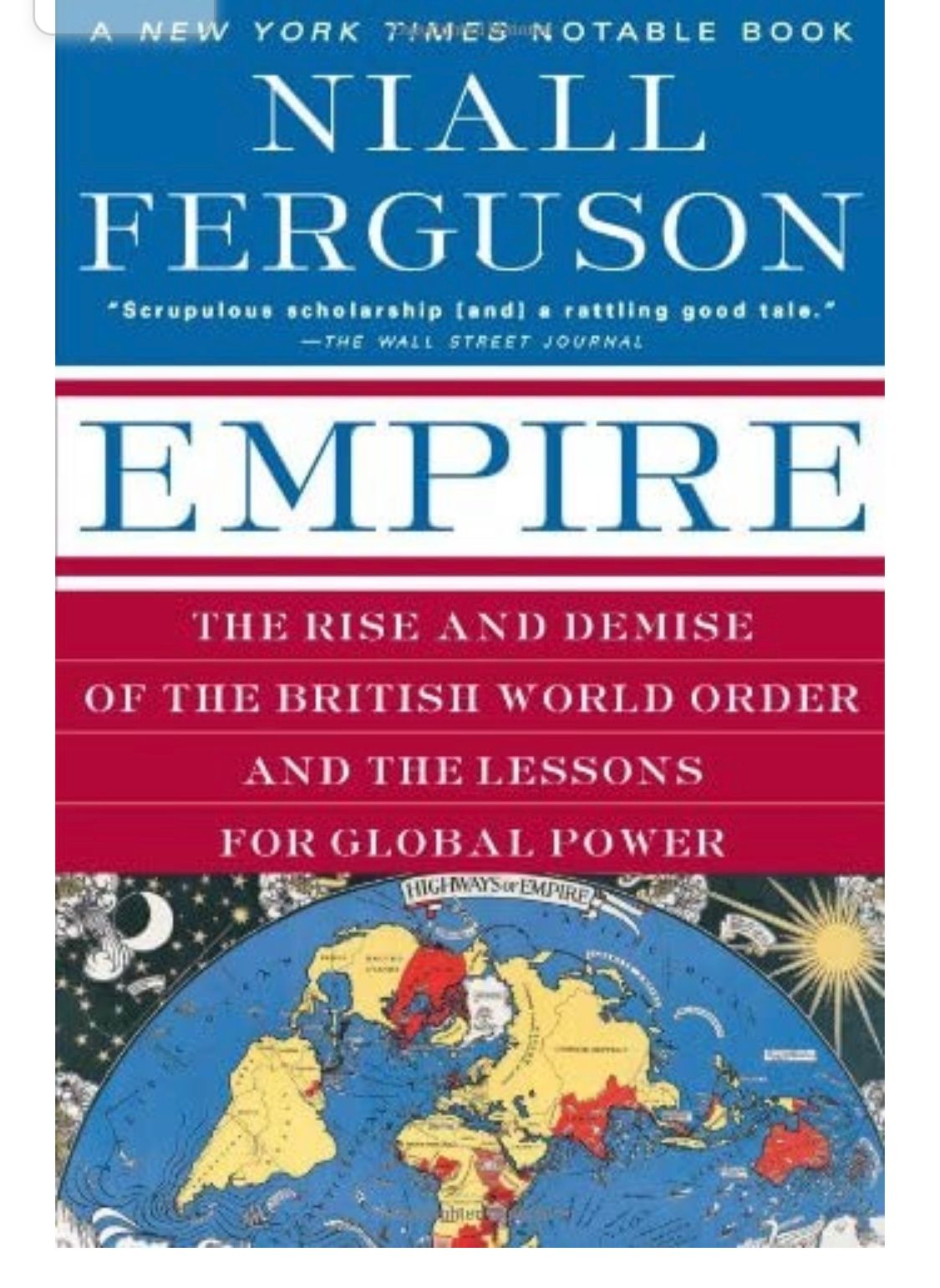What are you reading now?
-
Time to jump back into some science fiction...
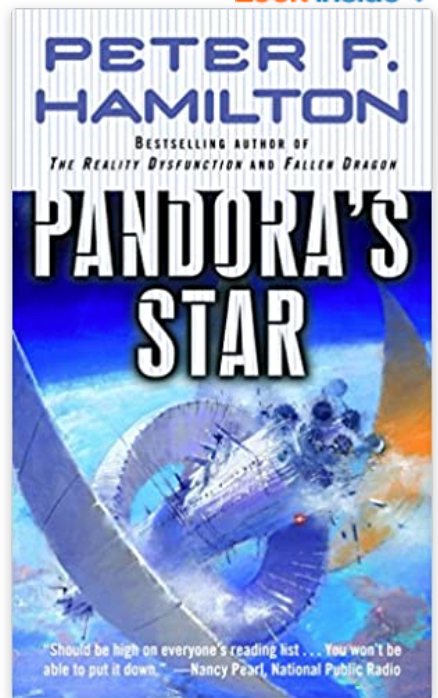
Gets good reviews.
The blurb:
The year is 2380. The Intersolar Commonwealth, a sphere of stars some four hundred light-years in diameter, contains more than six hundred worlds, interconnected by a web of transport "tunnels" known as wormholes. At the farthest edge of the Commonwealth, astronomer Dudley Bose observes the impossible: Over one thousand light-years away, a star . . . vanishes. It does not go supernova. It does not collapse into a black hole. It simply "disappears. Since the location is too distant to reach by wormhole, a faster-than-light starship, the "Second Chance, is dispatched to learn what has occurred and whether it represents a threat. In command is Wilson Kime, a five-time rejuvenated ex-NASA pilot whose glory days are centuries behind him.
Opposed to the mission are the Guardians of Selfhood, a cult that believes the human race is being manipulated by an alien entity they call the Starflyer. Bradley Johansson, leader of the Guardians, warns of sabotage, fearing the Starflyer means to use the starship's mission for its own ends, .
Pursued by a Commonwealth special agent convinced the Guardians are crazy butdangerous, Johansson flees. But the danger is not averted. Aboard the "Second Chance, Kime wonders if his crew has been infiltrated. Soon enough, he will have other worries. A thousand light-years away, something truly incredible is waiting: a deadly discovery whose unleashing will threaten to destroy the Commonwealth . . . and humanity itself.
"Could it be that Johansson was right? -
I'm quite enjoying this - sort of Steam/cyber-punky Space Opera. Doesn't take itself too seriously.
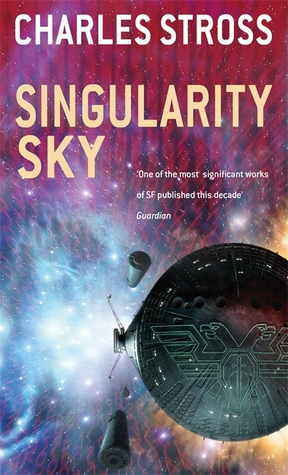
-
https://www.amazon.com/dp/B002YPOS2A?
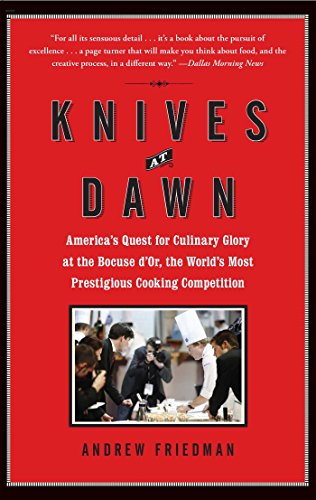
Knives at Dawn: America's Quest for Culinary Glory at the Legendary Bocuse d'Or Competition
Sizzling sauté pans. Screaming spectators. Television cameras. A ticking clock.
Fasten your seatbelt for the Bocuse d’Or, the world’s most challenging and prestigious cooking competition, where the pressure and the stakes could not be higher. At this real-life Top Chef, twenty-four culinary teams, each representing its home nation, cook for five and a half grueling hours. There are no elimination rounds—the teams have only this chance to cook two spectacular platters of food to be judged by a jury of chefs. Prize money, international acclaim, and national pride are on the line.
Knives at Dawn is the dramatic story of the selection and training of the 2009 American team, overseen by a triumvirate of revered culinary figures, Daniel Boulud, Thomas Keller, and Jérôme Bocuse, icons portrayed here in intimate detail that only the author’s unparalleled behind-the-scenes access could yield.
-
I'm quite enjoying this - sort of Steam/cyber-punky Space Opera. Doesn't take itself too seriously.

@Doctor-Phibes said in What are you reading now?:
I'm quite enjoying this - sort of Steam/cyber-punky Space Opera. Doesn't take itself too seriously.

Series?
I like a decent space opera.
-
@Doctor-Phibes said in What are you reading now?:
I'm quite enjoying this - sort of Steam/cyber-punky Space Opera. Doesn't take itself too seriously.

Series?
I like a decent space opera.
@Jolly said in What are you reading now?:
@Doctor-Phibes said in What are you reading now?:
I'm quite enjoying this - sort of Steam/cyber-punky Space Opera. Doesn't take itself too seriously.

Series?
I like a decent space opera.
There's two books, it's the Eschaton series.
If you find steam punk annoying, it might not work - he's a British writer I hadn't read until I started this one.
-
Time to jump back into some science fiction...

Gets good reviews.
The blurb:
The year is 2380. The Intersolar Commonwealth, a sphere of stars some four hundred light-years in diameter, contains more than six hundred worlds, interconnected by a web of transport "tunnels" known as wormholes. At the farthest edge of the Commonwealth, astronomer Dudley Bose observes the impossible: Over one thousand light-years away, a star . . . vanishes. It does not go supernova. It does not collapse into a black hole. It simply "disappears. Since the location is too distant to reach by wormhole, a faster-than-light starship, the "Second Chance, is dispatched to learn what has occurred and whether it represents a threat. In command is Wilson Kime, a five-time rejuvenated ex-NASA pilot whose glory days are centuries behind him.
Opposed to the mission are the Guardians of Selfhood, a cult that believes the human race is being manipulated by an alien entity they call the Starflyer. Bradley Johansson, leader of the Guardians, warns of sabotage, fearing the Starflyer means to use the starship's mission for its own ends, .
Pursued by a Commonwealth special agent convinced the Guardians are crazy butdangerous, Johansson flees. But the danger is not averted. Aboard the "Second Chance, Kime wonders if his crew has been infiltrated. Soon enough, he will have other worries. A thousand light-years away, something truly incredible is waiting: a deadly discovery whose unleashing will threaten to destroy the Commonwealth . . . and humanity itself.
"Could it be that Johansson was right?@George-K said in What are you reading now?:
Time to jump back into some science fiction...

Gets good reviews.
OK. Did about 100 pages yesterday. Totally engrossing. Interesting prelude that seems irrelevant to the big story, but...
Then, today, I did about 50 pages and was falling asleep. 50 pages of ... nothing, other than how terrible the "storm" was.
I'll do a bit more, but if ⅓ of this book is nothing but filler, I'll give up.
-

Interesting book. Covers the period from about 100 BC to the assassination of Julius Caesar (and a bit beyond). I did not know anything about this period in Rome, so gained some insight.
The book gives a pretty sympathetic view of Julius Caesar and gives the case that he was assassinated not because he was a dictator, but because he was a reformer who was threatening the "status quo" of the ruling Senate class.
One think that made me laugh a bit - politics have not changed in 2000 years.
-
@George-K said in What are you reading now?:
Time to jump back into some science fiction...

Gets good reviews.
OK. Did about 100 pages yesterday. Totally engrossing. Interesting prelude that seems irrelevant to the big story, but...
Then, today, I did about 50 pages and was falling asleep. 50 pages of ... nothing, other than how terrible the "storm" was.
I'll do a bit more, but if ⅓ of this book is nothing but filler, I'll give up.
@George-K said in What are you reading now?:
I'll do a bit more, but if ⅓ of this book is nothing but filler, I'll give up.
Yeah, that it is.
Thanks, but...keep me interested, and side stories with no connection to the plot until, presumably, a lot later, are a waste of time. I hate "teasers." Just tell me the story and don't keep me guessing about why you're telling this side story.
Good. Bye.
-
About ¼ of the way through this - I did tell you I was gonna read the book, didn't I?
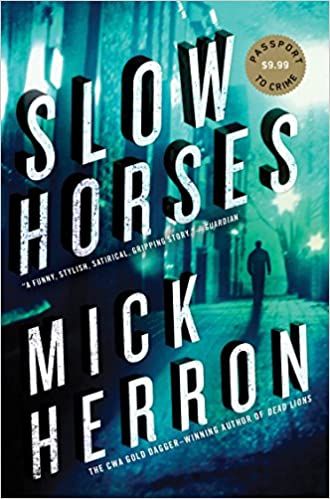
It's good so far. I may be prejudiced by having watched the series (I keep seeing Gary Oldman), but I'm enjoying nevertheless.
Short, easy read, which I hope to finish this week.
-
https://www.amazon.com/dp/B009KY5OFI?
Bought this on Kindle sale to read when I've gotten through the other must-reads that are languishing in the queue.
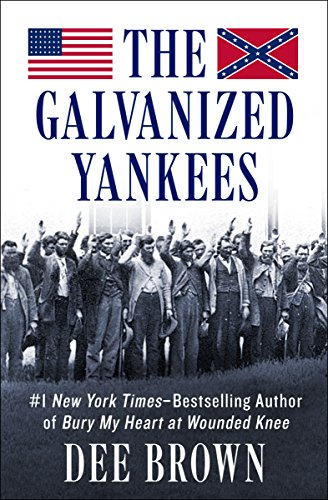
Amazon: "Historian Dee Brown uncovers an exciting episode in American history: During the Civil War, a group of Confederate soldiers opted to assist the Union Army rather than endure the grim conditions of POW camps. Regiments containing former Confederates were not trusted to go into battle against their former comrades, and instead were sent to the West as “outpost guardians,” where they performed frontier duties, including escorting supply trains, rebuilding telegraph lines, and quelling uprisings from regional American Indian tribes, which were sweeping across the Plains. This is an account of an extraordinary, though often overlooked, group of men who served in unexpected ways at a pivotal moment in the nation’s history.
"From the bestselling author of Bury My Heart at Wounded Knee, The Galvanized Yankees is “an accurate, interesting, and sometimes thrilling account of an unusual group of men [and] a fresh and informative study of the Old West in transition from frontier to stable society.”
-
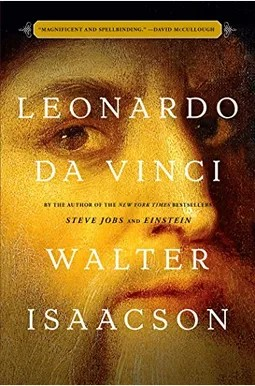
Listening to this while working in the yard. It's quite enjoyable to listen to this version, if you like detail. I'm almost half done with it, and there's much left to do in the yard.
-
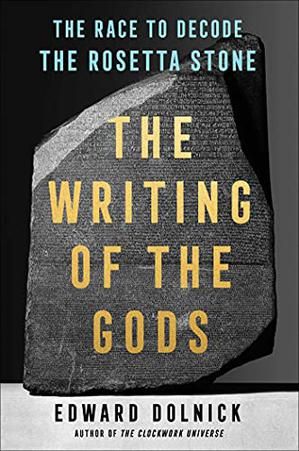
-

-
So as to not derail the "James Webb Space Telescope" thread, I'm replying to the question about the Fermi Paradox in that thread with reference to the Revelation Space books.
@Horace the first published novel in the "Revelation Space" universe is (duh) "Revelation Space." It just dumps you into the tech that Reynolds has invented, and makes things very difficult to understand.
What the hell is the "Glitter Band?" Who are the "Conjoiners?"
So many questions.
If you want a good order you need to understand the backstory, and I read the books/novellas in this order. These stories make the entire universe make sense.
• “Great Wall of Mars
• “Glacial”
• “A Spy in Europa”
• The Prefect
• Aurora Rising
• “Dilation Sleep”
• Chasm City • Revelation Space
• “Diamond Dogs”
• “Nightingale”
• “Grafenwalder’s Bestiary”
• Redemption Ark
• “Turquoise Days”
• “Weather”
• Absolution Gap
• “Galactic North”
• Inhibitor PhaseNow, having posted this list, there's a few stories that are not essential to understanding what's going on.
Here's what I'd eliminate as unnecessary to understand what's going on. The rest, I consider essential.
• “Glacial”
• “A Spy in Europa" - fun, but not essential.
• “Dilation Sleep”
• “Diamond Dogs”
• “Nightingale”
• “Grafenwalder’s Bestiary
• “Turquoise Days”
• “Weather”- also fun, but not essential.You really need "Great Wall of Mars," because it sets the whole universe in motion. The whole concept of humans vs conjoiners is set up there. Characters introduced her appear many, many years later.
Read them in this order...they're difficult, dense, but SO fascinating.

